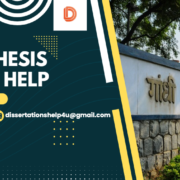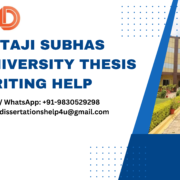MBA PhD writing help Osmania University
MBA PhD writing help Osmania University
Introduction to MBA and PhD Programs at Osmania University
MBA PhD writing help Osmania University. Osmania University, a prestigious institution located in Hyderabad, India, offers a variety of advanced degree programs, including the highly sought-after MBA and PhD programs. These programs are designed to equip students with the necessary skills and knowledge to excel in their respective fields. However, pursuing these advanced degrees often comes with its set of challenges, particularly when it comes to the rigorous academic writing requirements. This article (MBA PhD writing help Osmania University) aims to provide comprehensive assistance for students navigating the complexities of MBA and PhD writing at Osmania University.
Understanding the Requirements of MBA and PhD Writing
The Importance of Academic Writing
Academic writing is a critical component of both MBA and PhD programs. It involves the ability to present ideas clearly, concisely, and persuasively. For MBA students, this often means producing business reports, case studies, and strategic plans, while PhD candidates are required to conduct original research and present their findings in the form of a dissertation.
Key Elements of MBA Writing
MBA writing typically includes various forms of business communication, such as:
- Business Reports: Detailed documents that provide analysis and recommendations on specific business issues.
- Case Studies: In-depth examinations of particular business scenarios or companies.
- Strategic Plans: Comprehensive plans outlining business strategies and objectives.
Each of these writing forms requires a specific structure and style, emphasizing clarity, brevity, and analytical precision.
Key Elements of PhD Writing
PhD writing, on the other hand, is more research-oriented and includes:
- Literature Reviews: Critical evaluations of existing research related to the dissertation topic.
- Research Proposals: Documents outlining the planned research, including objectives, methodology, and expected outcomes.
- Dissertations: Comprehensive documents presenting the research conducted, including data analysis and conclusions.
PhD writing demands a high level of originality, critical thinking, and attention to detail.
Strategies for Effective MBA and PhD Writing
Developing a Clear Thesis Statement
A clear thesis statement is the foundation of any academic paper. It provides a concise summary of the main point or claim of the paper. For MBA and PhD students at Osmania University, developing a strong thesis statement is crucial as it guides the direction of their research and writing.
Conducting Thorough Research
Effective writing is built on thorough research. MBA students should gather data from credible sources such as industry reports, academic journals, and market analysis. PhD candidates should engage in extensive literature reviews and empirical research to ensure their work contributes new knowledge to their field.
Organizing Your Content
Organizing content logically is essential for clarity and coherence. Both MBA and PhD students should create detailed outlines before writing. This includes structuring the paper into sections such as introduction, literature review, methodology, results, discussion, and conclusion.
Utilizing Proper Citation Styles
Adhering to proper citation styles is critical to avoid plagiarism and give credit to original sources. Osmania University typically requires APA, MLA, or Chicago styles, depending on the discipline. Familiarity with these citation guidelines is essential for both MBA and PhD students.
Proofreading and Editing
Proofreading and editing are crucial steps in the writing process. Students should review their work multiple times to catch grammatical errors, inconsistencies, and formatting issues. Additionally, seeking feedback from peers or mentors can provide valuable insights for improvement.
Resources Available at Osmania University
Writing Centers and Workshops
Osmania University offers various resources to support students in their writing endeavors. The university’s writing centers provide one-on-one tutoring sessions, where students can receive personalized feedback on their drafts. Additionally, writing workshops are regularly conducted to help students improve their writing skills.
Library and Online Databases
The university library is a treasure trove of information, offering access to numerous academic journals, books, and online databases. MBA and PhD students can utilize these resources to gather relevant literature and data for their research.
Mentorship and Peer Support
Engaging with mentors and peers is an invaluable part of the academic journey. Faculty members at Osmania University are often willing to guide students through their writing process, offering advice and feedback. Additionally, forming study groups with fellow students can foster a collaborative learning environment.
Tips for Writing a Successful Dissertation
Choosing the Right Topic
Selecting a relevant and researchable topic is the first step towards a successful dissertation. PhD candidates should choose topics that are not only of personal interest but also contribute to the existing body of knowledge in their field.
Developing a Research Proposal
A well-crafted research proposal sets the stage for the dissertation. It should include a clear research question, objectives, methodology, and a review of relevant literature. This proposal must be approved by the academic committee before proceeding with the research.
Conducting Empirical Research
Empirical research involves collecting and analyzing data to answer the research question. PhD candidates should employ appropriate research methods, whether qualitative, quantitative, or mixed methods, to ensure the validity and reliability of their findings.
Writing and Revising the Dissertation
Writing the dissertation involves presenting the research findings in a coherent and logical manner. It is important to follow the approved structure and format, ensuring that each chapter flows seamlessly into the next. Multiple revisions are often necessary to refine the arguments and improve clarity.
Conclusion: MBA PhD writing help Osmania University
Writing for MBA and PhD programs at Osmania University can be challenging, but with the right strategies and resources, students can excel in their academic endeavors. By developing clear thesis statements, conducting thorough research, organizing content effectively, and utilizing proper citation styles, students can produce high-quality academic papers. Additionally, taking advantage of university resources such as writing centers, libraries, and mentorship programs can provide the support needed to succeed. Whether you are an MBA student working on a business report or a PhD candidate crafting your dissertation, these tips and resources will help you navigate the writing process with confidence.
Thank you for read our blog “MBA PhD writing help Osmania University”. I hope this blog is helpful to you, if you have any question feel free Call / WhatsApp: +91 9830529298 || Email: dissertationshelp4u@gmail.com.
Also read our more BLOG here.
#MBA, #PhD, #WritingHelp, #OsmaniaUniversity, #AcademicSupport, #DissertationHelp, #ThesisWriting, #HigherEducation, #AcademicWriting, #ResearchAssistance, #StudentSuccess, #UniversityLife, #GraduateStudies, #AcademicExcellence, #StudySupport














